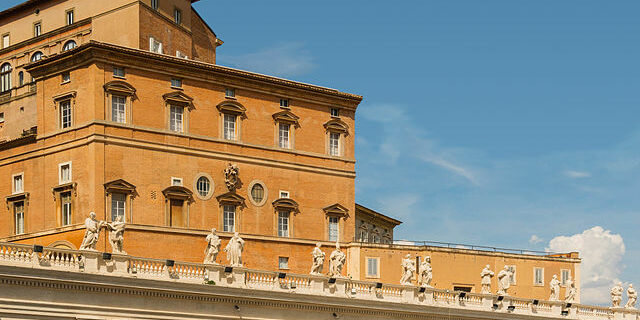Two texts are sowing confusion about assisted suicide, a topical issue in Italy. The first is an article by Jesuit Father Carlo Casalone, published on 15 January in the periodical Civilta Cattolica and entitled “The Parliamentary Discussion on ‘Assisted Suicide’”. The second is a column by Marie-Jo Thiel published on 31 January in the newspaper Le Monde and entitled “Catholic Church could support legislation providing a restricted framework for assisted suicide in Italy”. Why are these two pieces sowing confusion? Their authors are both members of the Pontifical Academy for Life and admit that their respective stances run counter to the doctrine of the Church. From one article to the other, the Italian case leads to a broader acceptance that would herald a change in opinion of the universal Church on assisted suicide. The newspaper La Croix has needed no further prompting to run an article entitled: “Assisted suicide, the Vatican’s strategic turn on bioethics”.
As if the matter was settled. The piece readily goes on to state: “The Pontifical Academy for Life has recently come out in favour of the Italian Church no longer opposing assisted suicide legislation”. Now, the fact that people give their own opinions is one thing. But the fact that their positions officially implicate the Pontifical Academy for Life is quite another.
The second point is the most important. As a member of the Pontifical Academy for Life myself, allow me to dispel any doubts. It is clear that the Academy’s members were not consulted and that’s just as well. Sought by the Servant of the Servants of God, Pope John-Paul II, and founded by Prof. Jérôme Lejeune, who was its first President, the Academy should not, by definition, support proposals at odds with the magisterium of the Catholic Church in an area where – in addition – all it is doing is passing on time-honoured wisdom. For respect for human life, as advocated by the Church, is a golden rule that far predates the Christian Revelation. The commandment Thou shalt not kill harks back to the Ten Commandments for believers. It also exists for non-believers. Take the Hippocratic Oath – dating back to 400 BC – for example. Do not kill one’s fellow creature is one of the unwritten laws that is nevertheless wrought in the human heart. The Academy no more than the Catholic Church wields no power over this founding prohibition.
“Assisted suicide is already a form of euthanasia”
One final point about these two pieces. The article by Father Casalone frames assisted suicide as a means of opposing legislation on euthanasia. Using the lesser evil as a pretext to escape the worst. The outcome is inevitable. Once tolerance sets in, it is already too late. Citing Pope Francis, who has always been clear, really takes the biscuit. In his 9 February General Audience, he yet again maintained: “We must accompany death, not provoke death or help any kind of suicide.” Moreover, it is deceptive to put a personal spin on what the Church teaches in terms of “imperfect laws”. The Encyclical Evangelium vitae (Article 73) stipulates that a more restrictive law may legitimately be passed to replace a more permissive law only if said law is already in force. As such, this does not represent cooperation with an unjust law but, on the contrary, a limitation of its effects. Regarding assisted suicide, the case does not hold up as it would amount to deliberately creating a bad law to avoid another one, to come, that would be even worse. Assisted suicide is already a form of euthanasia. And the legislation that they claim to avoid will only be quicker coming. Nothing and no one will stop the extension of the initial sin which prompts medicine to procure death. Just as the framework regulating abortion is an illusion, so the one governing euthanasia will be too. As for Marie-Jo Thiel’s column, it shows French support for the Jesuit’s meddling in Italian politics and stigmatises “the proponents of the absolute sanctification of life [who] are vociferously levelling criticism and condemnation”. Whereas Father Casalone did not mention his affiliation to the Academy for Life, Marie-Jo Thiel feels obliged to clarify this for him and for her. It would have been more respectful not to compromise the Pontifical Academy for Life. Its members who, by statute, are defenders of life, are against the idea that the Church might lay the first stone of euthanasia in Italy. Or elsewhere.










